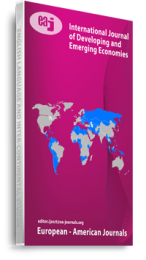Fiscal policy is one of the public sector tools used in the pursuit of these macro-economic goals. Fiscal policy could then be said to be an embodiment of all government plans aimed at achieving desired macro-economic goals, without directly altering the level of money supply. Nigeria, like most other Third World Countries, is committed to the achievement of a range of economic objectives such as high level of employment, rapid economic development, equitable distributions as well as reasonable price stability. However, the problem of rising prices has been particularly acute in recent years and has not responded to monetary and fiscal measures. In particular, it is becoming increasingly evident that we cannot count on maintaining the desirable level of economic development and simultaneously achieving reasonable price stability (Tomori, S., 1982). It is in realization of this fact that emphasis is on highlighting the various fiscal policy measures with respect to the problem of inflation. Furthermore, a sound study of the effects of various fiscal policy measures on the control of inflation is necessary in the bid to determine the appropriate policy mix required for dealing with the problem.
Keywords: Control, Fiscal Policy, Inflation, Measures, Nigeria

